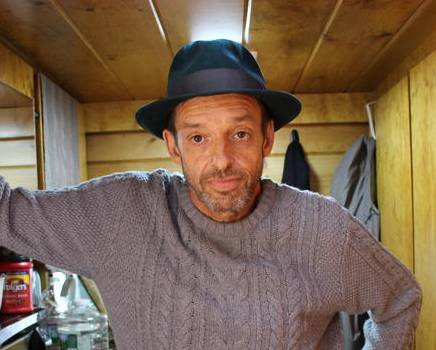

Before I got sober, I’d only gone without alcohol for more than seven days three times since I was 13. The first two “extended dry times” led me to attempt suicide and end up in psychiatric hospitals – the third included talking mice, fireworks and long conversations with princesses. Let me explain.
In March of 1978, I’d been stationed in Germany for a little more than a year and had quickly progressed from smoking hash to smoking opium to snorting speed to shooting speed to shooting heroin. Through each of these promotions, alcohol was my loyal aide-de-camp, always at my side offering comfort and condolences. By the brass ring of heroin, I recognized it was time to leave the drug merry-go-round, but dope has a funny habit, like gum on your shoe, of not wanting to be left behind. I went to my company commander, Captain Baines, a nice enough man I’d not spent much time with, and asked for help. Luckily the military’s pendulum regarding drugs – the brig or rehab – was firmly in the “get this soldier some help” position, and I was sent to a rehab program at Landstuhl Army Hospital.
The SHARE program was a lot of things, but effective it wasn’t, at least for most people. I was one of the lucky ones, and I have not used any opiate since 1978. Unfortunately for me, alcohol was also verboten at SHARE. I knew I had a minor heroin problem, but banning alcohol seemed harsh. At the time, I didn’t recognize alcohol as an issue, but being separated from it seemed to make me go mad. Literally. After a couple weeks at SHARE, I decided I was in love with my married therapist and, while her husband was visiting, brutally slashed my wrists in a bathroom to demonstrate my love. It didn’t work on any level, and I was put in the psychiatric unit for a couple weeks, tested and determined fit for duty. I was discharged, returned to my home unit and dramatically increased my booze intake for the remainder of my tour. No heroin, though, so I was a success.
Eight years later, I was a seminary student at a conservative graduate school and Baptist youth minister, two roles that make secret drinking a necessity. I’d struck a balance, living 10 miles from seminary and 45 miles from my church, so I could still claim sanctuary and drink in the privacy of my own bedroom. The church, though, thought it would be great to have me closer, and helped us find a place to live right in that town. Now, I was stuck. Baptists have a finely-tuned sense of smell when it comes to booze, fellow students at seminary were similarly attuned, and I’d made a vow never to actually drink in a car. I had to stop altogether – except when I could get away for a couple days and get sloppy drunk. Still, between church and seminary I couldn’t drink the way I needed to, much less the way I wanted to. I quit . . . and slowly went insane. After a few weeks, I had invented a new sport – stair surfing I called it – that involved throwing myself face-first down flights of stairs and body-surfing to the bottom. Soon, I was back to slicing my wrists – not as horrifically as at Landstuhl, but still leaving wounds difficult to explain to fellow students or parishioners.
Finally, I was hospitalized in a psychiatric hospital for two months, where I was diagnosed with depression – yuh think? – put on medication and discharged. I resigned from the church and withdrew from seminary, found new work and returned to drinking like a gentleman. A gentleman who drinks too much, but a gentleman nevertheless.
The third time, with talking mice and rolling pumpkins and princesses? As a single dad, I took my three young daughters to Disneyworld, where we spent a week busy from dawn until near midnight. I’d just been fired from a job for drinking – and behaviors related to drinking – and needed to convince myself I wasn’t an alcoholic. Proving to yourself you’re not an alcoholic is one dead-sure sign you are, but I determined not drinking at Disneyworld while alone with three kids under the age of 13 for seven days was proof enough. We returned home with me as a certified, in my mind, non-alcoholic, and I embarked on a six-month bender. But at least I wasn’t an alcoholic.
 About the author: Keith Howard used to be a homeless drunk veteran. Then he got sober and, eventually, became director of Liberty House in Manchester, a housing program for formerly homeless veterans. There, he had a number of well-publicized experiences – walking away from federal funds in order to keep Liberty House clean and sober, a contretemps with a presidential candidate and a $100,000 donation, a year spent living in a converted cargo trailer in Raymond. Today, he lives in a six-by 12-foot trailer in Pittsburg, NH, a few miles from the Canadian border with his dog, Sam. There, Howard maintains tinywhitebox.com, his website, works on a memoir, and a couple of novels while plotting the next phase of his improbable life.
About the author: Keith Howard used to be a homeless drunk veteran. Then he got sober and, eventually, became director of Liberty House in Manchester, a housing program for formerly homeless veterans. There, he had a number of well-publicized experiences – walking away from federal funds in order to keep Liberty House clean and sober, a contretemps with a presidential candidate and a $100,000 donation, a year spent living in a converted cargo trailer in Raymond. Today, he lives in a six-by 12-foot trailer in Pittsburg, NH, a few miles from the Canadian border with his dog, Sam. There, Howard maintains tinywhitebox.com, his website, works on a memoir, and a couple of novels while plotting the next phase of his improbable life.







